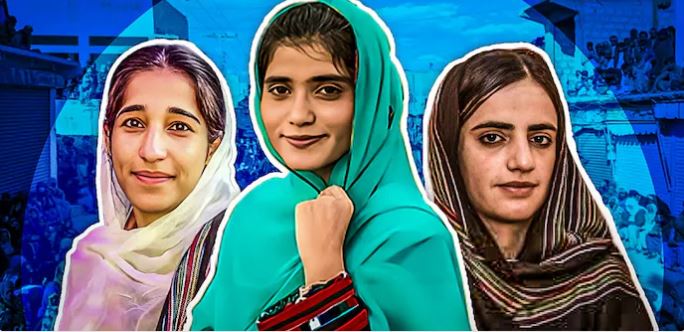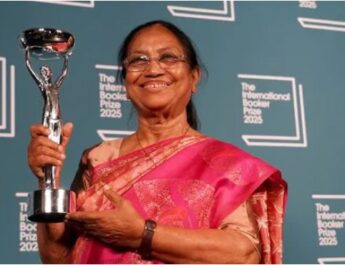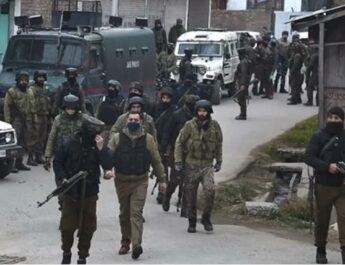New Delhi: Mahjabeen’s disappearance is indicative of a broader trend in Balochistan. Following the detention and subsequent arrest of Mahrang Baloch, known as Balochistan’s lioness, in March, there has been a noticeable increase in the targeting of women in the province. The Baloch Women Forum has stated that this trend “reflects an alarming escalation in the ongoing human rights violations in Balochistan”.
An enforced disappearance is defined as an “arrest, detention, abduction or any other form of deprivation of liberty by agents of the State or by persons or groups of persons acting with the authorisation, support or acquiescence of the State, followed by a refusal to acknowledge the deprivation of liberty or by concealment of the fate or whereabouts of the disappeared person, which place such a person outside the protection of the law”, according to the Office of the United Nations High Commissioner for Human Rights (OHCHR).
In Balochistan, the length of enforced disappearances can vary significantly, with many individuals missing for years, and some cases extending up to 18 years. The remains of certain individuals are discovered years later, often discarded or interred in remote locations.
The rise in forced disappearances of Baloch women occurs concurrently with a surge in Baloch armed rebel activities, which have destabilized Pakistan’s internal security and challenged the military establishment’s authority.
Former Prime Minister Shahid Khaqan Abbasi acknowledged in May that the “state’s grip on Balochistan is slipping, especially after nightfall”. In light of these escalating internal conflicts, Army Chief Asim Munir is visibly reinforcing his control.
MAHJABEEN BALOCH ABDUCTED DAYS AFTER HER BROTHER’S DISAPPEARANCE
In the early hours of May 29, Mahjabeen Baloch, a 24-year-old library science student at the University of Balochistan, was forcibly taken by personnel from Pakistan’s Frontier Corps and intelligence agencies. She was seized from Quetta’s Civil Hospital, and since that time, her location has remained unknown, as reported by The Balochistan Post.
Mahjabeen’s detention occurred less than a week after her brother, Muhammad Younus, an engineering student, was also forcibly taken from their home in Basima, a town located in central Balochistan.
He was allegedly abducted during a nighttime raid conducted by the Counter-Terrorism Department (CTD) and the Inter-Services Intelligence (ISI).
“Our homes have faced repeated raids by security forces. Our loved ones have been taken from their beds, and their mutilated bodies discarded in remote areas… Many still remain lost in the shadows of enforced disappearance,” stated Mahjabeen’s family.
The Baloch Women Forum (BWF) has denounced the incident, asserting that Mahjabeen’s disappearance exemplifies a troubling trend of “state violence against Baloch women”.
A HISTORY OF REPRESSIVE ENFORCED DISAPPEARANCES IN BALOCHISTAN
Secessionist feelings in Balochistan date back to what many consider Muhammad Ali Jinnah’s betrayal in 1948, when the Khan of Kalat was pressured into joining Pakistan despite previous promises of independence.
For many years, Balochistan has been a center of unrest, with the ethnic Baloch population protesting against what they view as exploitation by the Pakistani government, as well as by Chinese interests linked to the China-Pakistan Economic Corridor (CPEC).
The Pakistani military and security forces have employed enforced disappearances as a means to stifle dissent, targeting men, children, and the elderly who are suspected of supporting Baloch nationalist movements or criticizing state policies.
These disappearances frequently involve abductions carried out without legal procedures, followed by instances of torture, and in certain cases, extrajudicial killings.
A notable instance is the case of Abdul Ghaffar Langove, a Baloch nationalist and the father of activist Mahrang Baloch. He was abducted in 2009, and his body was discovered in 2011, showing clear signs of severe torture.
Such findings are not rare; families often come across the remains of their loved ones discarded in isolated locations, mutilated beyond recognition, serving as a warning to others.
As reported by the Commission of Inquiry on Enforced Disappearances (COIOED), there were 2,752 ongoing cases of enforced disappearances documented in Balochistan as of January 2024, although human rights organizations like the Voice for Baloch Missing Persons (VBMP) estimate the actual figure to be closer to 7,000 since 2004.
In September 2024, the UN Committee on the Elimination of Racial Discrimination voiced concerns regarding the “rising incidence of enforced disappearances among individuals from ethnic minority groups in the Sindh and Balochistan Provinces”.
TARGETING OF BALOCH WOMEN IS A DISTURBING NEW TREND
With men imprisoned and killed by Pakistani security forces, Baloch women have assumed more significant roles in protests and activism, particularly through movements such as the Baloch Yakjehti Committee (BYC). Consequently, they have also become direct targets of state oppression.
Some women have even taken on the role of suicide bombers for the Balochistan Liberation Army (BLA) as part of the armed struggle.
In response to Mahjabeen’s detention, the National Democratic Party based in Balochistan stated that “for years, Baloch men, both young and old, have endured enforced disappearances”, and cautioned that this “inhumane trend has now spread to Baloch women”, as reported by The Balochistan Post.
Mahrang Baloch, a 32-year-old doctor-turned-BYC leader, was apprehended on March 22 during a peaceful sit-in in Quetta, along with her sister Mehran-e-Sareng. Their whereabouts remained unknown for nearly 12 hours. She faces charges of terrorism, sedition, and murder.
In February 2023, Mahal Baloch, a 28-year-old mother of two, was apprehended by the CTD in Quetta following a raid on her residence. Her young daughters were also held overnight. In a separate incident, Rasheeda Zehri was forcibly taken in February 2023, representing an early example of this alarming trend.
Although exact figures regarding the number of women abducted are difficult to ascertain due to under-reporting, the BWF has observed that the targeting of women constitutes a “deeply disturbing development” that infringes upon cultural norms and human rights.
Mary Lawlor, the UN Special Rapporteur on Human Rights Defenders, voiced her concerns regarding the detention of Mahrang and other women, urging Pakistani authorities to “refrain from misusing counter-terrorism or public safety measures against human rights defenders”.
“The case of Mahrang Baloch underscores the growing targeting of women activists in Pakistan. Women who challenge the status quo not only face political persecution but also encounter threats of gender-based violence,” stated Irfan Ali, Amnesty International’s coordinator for Pakistan.
Initially, they targeted Baloch men, followed by children and the elderly, and now women. This indicates a concerning escalation of the Pakistani establishment’s repression in Balochistan.




